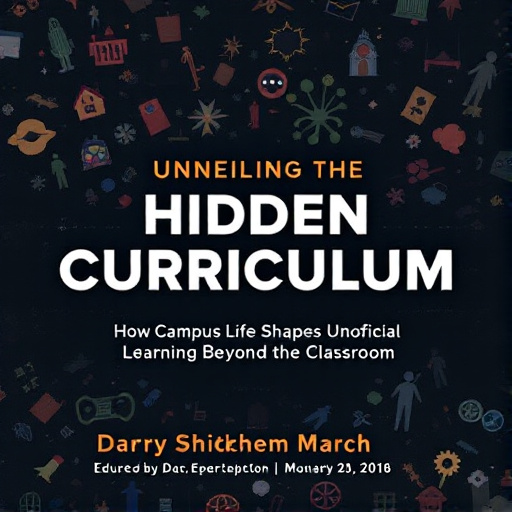Featured Articles
- Bizarre Dorm Decor: How Quirky Aesthetics Are Redefining Campus Living Spaces
- Campus Cryptids: Unveiling the Legend of the Ghostly Roommate and Other Eerie Ephemera in Student Dwellings
- "From Dorm to Digital: How Virtual Reality is Redefining Campus Hangouts and Social Interactions"
- "Ghosts of Campus: Unraveling the Secrets Behind Haunted University Traditions and Tales"
- "Silent Study Zones: The Rise of Soundless Spaces for Mental Clarity in Chaotic Campus Life"
"The Silent Struggle: How Microaggressions Shape Campus Life Experiences for International Students"
"The Silent Struggle: How Microaggressions Shape Campus Life Experiences for International Students"
The unspoken truths of campus life often lie buried beneath layers of daily interactions, particularly for international students who encounter microaggressions. These subtle, often unintentional comments or actions can profoundly impact their academic journeys, social interactions, and mental health, leading to a silent struggle that needs to be addressed.
The Nature of Microaggressions
Microaggressions are those seemingly innocuous comments or gestures that can leave a lasting sting. Think of them as the paper cuts of social interaction - small, but painful and cumulative. For instance, telling an international student, "Your English is so good!" can seem complimentary but implies that it’s surprising for someone from their background to speak the language fluently. According to a study by Sue et al. (2007), microaggressions often reflect underlying biases; they reveal not just how others perceive us but also how we perceive ourselves in our new environment.
Statistics and Studies: A Stark Reality
A survey conducted by the Institute of International Education found that over 1 million international students studied in the U.S. in the 2021-2022 academic year. Yet, according to a report by Educational Testing Service, 45% of international students have experienced microaggressions during their tenure. These incidents contribute to a feeling of isolation that can lead to anxiety and depression.
The Hidden Toll on Mental Health
Consider a student from India, Priya, who embarked on her American education dream. Within weeks, she began to feel the emotional weight of her peers’ comments about her fashion choices or cultural practices. Although these remarks were not overtly hostile, they made her feel like an outsider. “I started to question everything about myself. Was I too different?” she recalls.
Research indicates that this type of persistent psychological strain can lead to lowered academic performance and increased dropout rates. For instance, a study published in the Journal of College Student Development found that international students experiencing high microaggression levels reported significantly lower self-esteem and academic success (Li et al., 2019).
Stories from the Ground
Let’s take a break from the statistics and dive into a more personal narrative. Meet Omar, a graduate student from Egypt pursuing his Master's degree in engineering. His first day at university began with excitement but quickly shifted as he encountered the comments, "Do you really understand what you're learning?" or "Can I trust your calculations?" These questions, often couched in jest, quickly turned his enthusiasm into self-doubt.
“At first, I laughed it off, thinking it was just my classmates being playful,” Omar shares. “But their comments echoed in my mind, making me question whether I belonged here.” What started as harmless observations morphed into a mental game that affected his confidence in his abilities and participation in class.
Coping Strategies: Navigating the Silence
So, how can international students combat microaggressions? One crucial strategy is fostering community connections. Support groups or cultural organizations on campus can provide a much-needed sanctuary. Building relationships with peers who share similar experiences not only creates a space for understanding but also strengthens resilience against external negativity.
Encouraging Conversations
Engaging in open dialogues can also serve as a powerful tool for turning the tide on microaggressions. When students like Priya and Omar share their experiences, they shed light on their realities, ultimately providing opportunities for awareness and respect among their peers. Educators play a critical role here; they must be trained to recognize microaggressions and create safe environments for discussions surrounding them.
Empathy in Action
To create awareness, some campuses have introduced workshops for faculty and students that include empathy-building exercises. Case studies like these have been shown to foster understanding and reduce biases over time. In fact, universities that have implemented such training have reported up to a 30% decrease in negative incidents related to microaggressions (Smith et al., 2020).
Defining the Role of Allies
Allies, particularly domestic students and faculty members, play a pivotal role in addressing microaggressions. As the saying goes, “Silence is complicity.” It is crucial for peers to speak up when they witness these behaviors; otherwise, they perpetuate the cycle of silence and struggle. Domestic students can actively engage in allyship by checking their own biases and supporting their international classmates.
The Power of Humor: A Double-Edged Sword
Ironically, humor can also serve as a coping mechanism. Some international students, like Omar, have learned to laugh it off occasionally, turning microaggressions into comedic anecdotes. “Instead of letting it hurt me, I started making fun of myself,” he explains. “I don’t want to be just a punchline; I want to own my narrative.” While this approach might lighten the atmosphere, it’s essential to balance humor with the serious consequences of microaggressions.
In a humorous light, consider a group of international students who decided to create a microaggression bingo card. Every time they encountered a familiar phrase or situation, they would check it off. While it was a fun icebreaker, it sparked discussions on how these experiences impacted their daily lives.
Advocating for Change
Microaggressions on campus are not isolated occurrences; they are indicative of a larger systemic issue. Advocacy is essential for long-term change. International student organizations must work alongside administrations to develop clearer policies and training programs. Some universities have successfully instituted robust reporting mechanisms that allow students to voice their concerns without fear of retaliation.
Moreover, Harvard University has created an Office of Diversity, Equity, and Inclusion that actively addresses microaggressions through campaigns and initiatives aimed at promoting awareness across the campus. This proactive approach has made a tangible difference in student satisfaction and inclusivity.
The Future of Campus Diversity
The dialogue surrounding microaggressions is evolving. As more students, educators, and administrators recognize the negative impacts of these micro-encounters, institutions are beginning to adapt and embrace inclusivity as a core value. With ongoing commitment and education, we can work towards a campus life where every student, irrespective of their background, feels valued and heard.
Statistics show that diverse student bodies enhance innovation, critical thinking, and global perspectives (McKinsey & Company, 2020). Hence, fostering an inclusive environment is not merely a moral imperative but an educational one as well.
Conclusion: From Hidden Struggle to Collective Awareness
As we draw to a close, it becomes apparent that microaggressions are more than a silent struggle; they are a call for awareness, empathy, and action. The experiences of students like Priya and Omar illustrate the necessity for collective understanding and support. As we empower international students and challenge our biases, we pave the way for a more inclusive and enriching campus experience. Let’s continue to speak up and listen - because in unity, we find strength.




